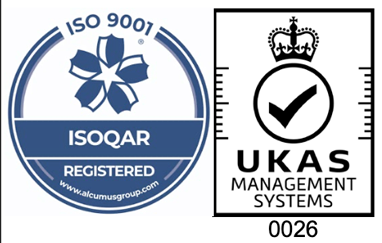Material guide to Polychloroprene Rubber
11th September, 2024
Polychloroprene rubber, or neoprene, is a versatile synthetic material known for its durability, chemical resistance, and wide range of industrial uses.
Polychloroprene rubber, commonly known as neoprene rubber, is a versatile synthetic rubber with a wide range of applications across various industries.
In this article, we will discuss the characteristics, applications, and industries associated with polychloroprene rubber, highlighting why it remains a popular choice in both industrial and consumer products.
What is polychloroprene rubber?
Polychloroprene rubber is a type of synthetic rubber created by polymerising chloroprene, a chemical compound.
This process results in a material that is highly resistant to degradation from a variety of factors, including weathering, ozone, and many chemicals.
These properties make polychloroprene rubber a reliable choice for many applications that require durability and resilience.
Key properties of polychloroprene rubber
Chemical resistance
Polychloroprene rubber is resistant to a wide range of chemicals, including oils, solvents, and many acids. This makes it an ideal choice for applications in environments where exposure to harsh chemicals is common.
Thermal stability
This rubber maintains its flexibility over a wide temperature range, typically from -50°C to 120°C. This property allows it to be used in both high and low-temperature applications without losing its structural integrity.
Weather and ozone resistance
Unlike natural rubber, polychloroprene rubber does not easily degrade when exposed to sunlight, ozone, or other atmospheric conditions. This makes it an excellent material for outdoor applications.
Physical toughness
The material offers excellent abrasion, tear, and impact resistance. Its toughness ensures that products made from polychloroprene rubber are long-lasting and capable of withstanding rigorous use.
Water resistance
Polychloroprene rubber is also known for its waterproof qualities. It doesn’t absorb water, which makes it a preferred choice for marine applications and products like wetsuits.
Applications of polychloroprene rubber
Automotive industry
Polychloroprene rubber is used for manufacturing various components such as hoses, belts, gaskets, and seals. Its ability to resist oil and fuel, coupled with its durability, makes it ideal for automotive applications.
Construction
Polychloroprene rubber is commonly used in construction for waterproofing membranes, bridge-bearing pads, and expansion joints. Its ability to withstand extreme weather conditions and its durability make it an excellent choice for such applications.
Electrical insulation
Its high electrical resistance and thermal stability make it suitable for use as an insulating material in the electrical and electronics industries. Polychloroprene rubber is often used to insulate wiring and in the manufacturing of protective equipment.
Marine applications
In the marine industry, polychloroprene rubber’s water-resistant properties make it an excellent material for wetsuits, diving suits, and other protective clothing. It is also used for boat bumpers and seals.
Medical field
Due to its flexibility, durability, and ability to be easily sterilised, polychloroprene rubber is used in the medical field for applications such as orthopedic braces, gloves, and other medical devices.
Aquaseal polychloroprene rubber
At Aquaseal Rubber, an extensive range of our products are available in polychloroprene, including watertight hatch seals, rubber seals, sheeting, hose and tubing, sponge and foam, and gaskets.
See the full range of products we offer in polychloroprene rubber here or get in touch with our specialists for the top rubber solutions.


